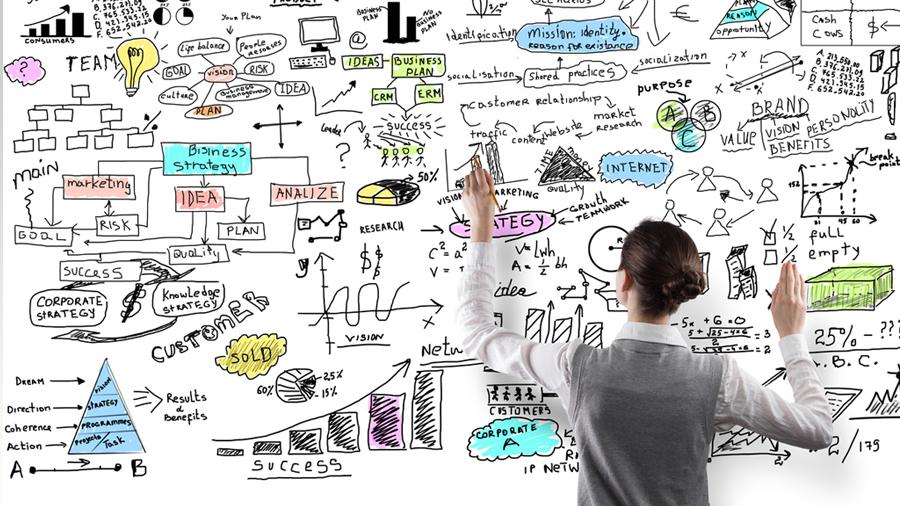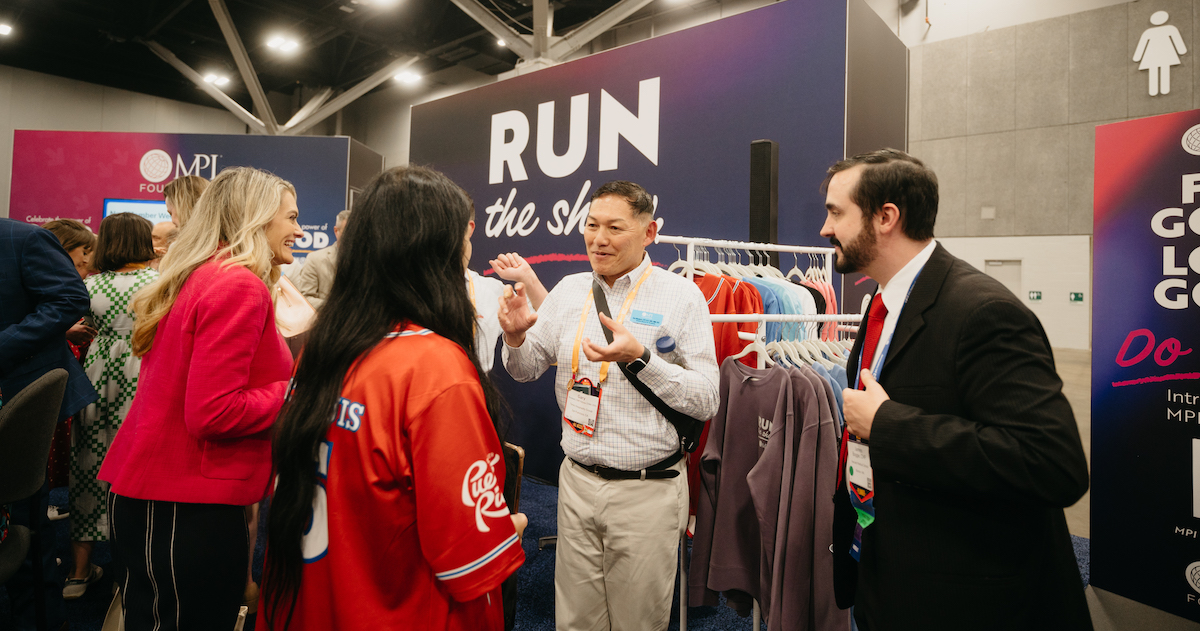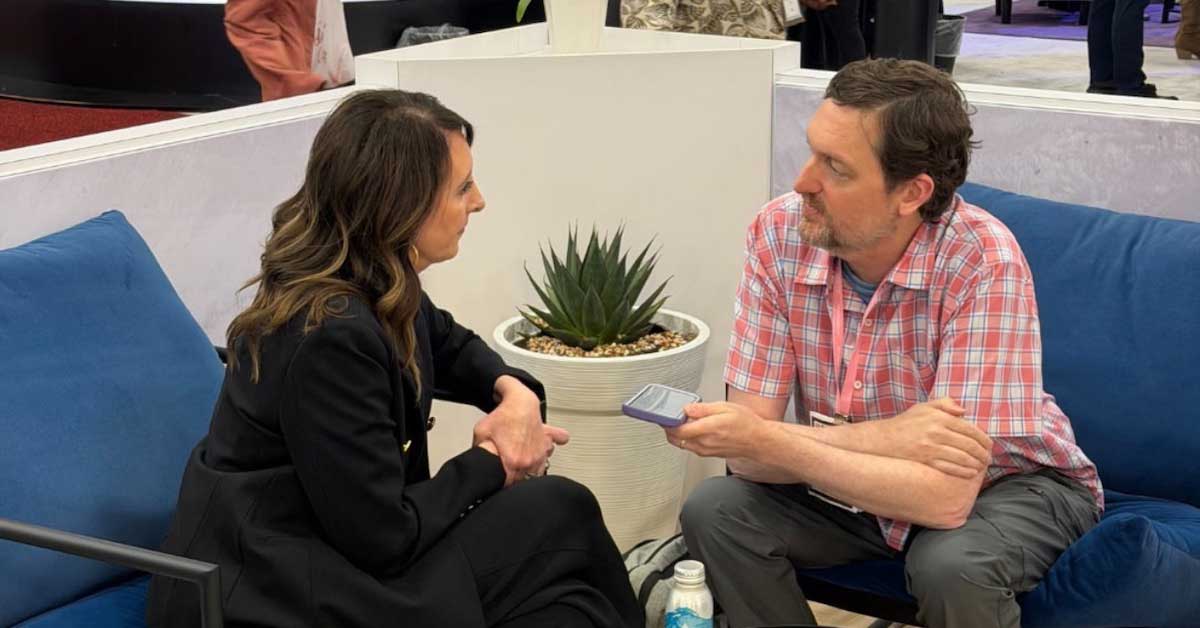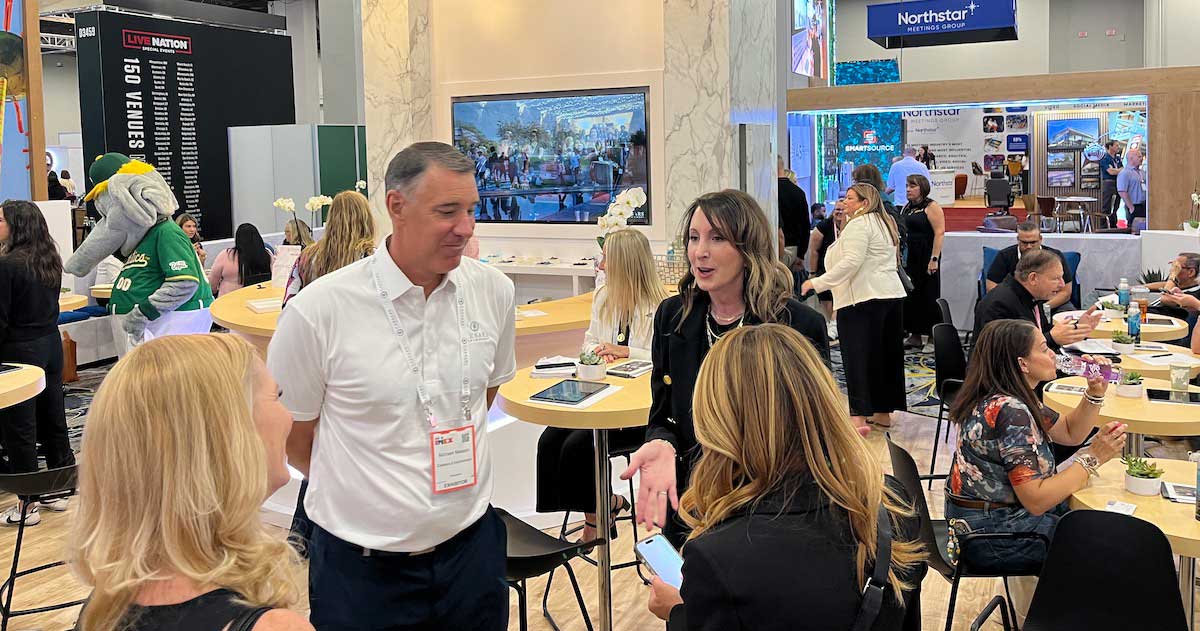Q: For many, the role of meeting professional has evolved into the role of strategist. How has your role changed/grown in the current business climate?
We need to start the planning with the end goals in mind by asking the right questions regarding the planner’s goals and objectives from the very beginning. My role as an account executive continues to support my clients for the best possible partnership.
With changes in the business climate, it does seem as if planners are making changes to the program at the last minute or having to reduce their overall budget. My role is to provide alternatives to adjust to those changes and help make the program an unforgettable experience for attendees, without even knowing the group budget was cut.
Getting creative like using candles, local fruits and local florals for centerpieces in lieu of expensive over-the-top florals is one way to showcase local beauty without costing a fortune. -Manuel
Related Articles: How to Create Sponsor Friendly Events
Shift from Tactical to Strategic Meeting Planning
Not too many years ago, a meeting professional was viewed as just the person who ensured the meeting ran successfully—the room was set to specifications, the speakers and attendees showed up, the coffee was ordered and the food was pure perfection. But meeting professionals have always had to be strategists—budget crunching, mind reading and miracle-working divas and divos.
As our profession grows, I think we’ve become much more deliberate and sophisticated strategists in our approach to delivering an experience. It’s hard to find a good meeting professional today, be it supplier or planner, who doesn’t wear that strategic hat. You have to wear it when selling your city or convincing your boss.
In my opinion, that strategic hat seeks to ask and answer a basic question: “What’s in it for me (WIIFM)?” The CEO? The meeting participant? The host venue? When you can step back and seek to answers to that question, then you can begin designing an experience that will catch your key stakeholders’ attention and ideally draw them in for more. It’s hard to plan an event without knowing the expectations of WIIFM and always planning with the end game in mind. -Grinage-Prince
It is indeed about strategy. You have to pay attention and see what is going on, understand how it affects your organization and figure out what you can do about it. It helps to look at things from multiple levels and get perspectives from those who are close to your organization and those who are distant.
Remember not to fall into the trap of thinking you know everything about your organization, challenge your own assumptions and beliefs and get others involved in this process in order to develop multiple perspectives to address your opportunities and challenges. -Barradas
The new role is something between the strategist and the magician. -Bernardini
The supplier role is also continuing to evolve into the role of strategist. If my team is doing an effective job working with a client, the client stops seeing us as a third-party vendor and starts to engage with us as strategic partners and advisors. However, I recognize that this level of trust must be earned.
For both planners and suppliers, becoming a strategist requires a shift in thinking from the tactical, day-to-day operations to becoming more forward thinking, anticipating needs and sharing best practices learned from across the industry. This shift has certainly impacted my own role. My team and I are constantly focused on how we can improve, leverage industry insights and “think big” to earn the title of strategic partner. -Lambert
My role continues to be more and more global as our customers’ procurement processes continue to mature. It is more important than ever that our organization is aligned to serve the complexities of our customers’ structures and ensure we continue to drive value for all stakeholders. -Hamilton
Our role has changed to be that of an advisor. We assist our clients to understand the current environment and conditions that are affecting our properties, our stakeholders and our industry, and in turn we advise our properties of the challenges that are facing our planners and our partners. -Cook
Since I am in the medical meeting segment of the industry, the meeting planner role has changed significantly. We must now know governmental regulations and be responsible for spend tracking and reporting to the government. Being a strategist in medical meeting planning is essential as planners need to plan for global compliance. -Schaumann
Meeting Planning with The Right Objectives
Q: What are some best practices that independent event planners—or any meeting pro whose role has expanded beyond tradition responsibilities—must develop to succeed?even
Growing beyond logistics is essential. This does not mean that logistics aren’t important. The best-strategized meeting fails without solid logistics. However, the management of logistics has to be connected to the overall objectives of the meeting. Otherwise, plans are made in a vacuum and could seem completely disconnected to what the organization says they want to accomplish with the meeting.
So, the practices that planners need to develop include an ability to not only see, but to discuss the intended outcomes of an event, and how the elements of the event will support those outcomes. -Breining
More than ever independent planners need to be flexible. We are often being asked to do things outside of our normal scope of work. Clients want a one-stop shop when it comes to troubleshooting and problem solving, and the only answer they want to hear is “yes.” Although part of the traditional scope, resilience, perseverance and negotiating skills are more relevant now than ever. -Liaschenko
Consider your career goals. If you want a seat in the C-suite, then you’ll need to learn the balance of managing both details and the big picture. Many planners might not realize it, but as you go about your day, planning your next annual conference, you’re already dealing with several departments at work: HR, executive, finance, marketing/PR, etc. By doing so, you’re laying the groundwork to build the skill set that’s needed to grab a chair at the executive level. -Kleinfeld
A successful planner is one that seeks to understand the needs and purpose/intent of the event so they can communicate with both the organization they are working with/for along with the property/venue they are partnering with to execute the best outcome for the delegates and all the stakeholders. Everyone is looking for a win-win, and often the planner is the one that is bridging that gap of communication and understanding between the two entities. -Cook
Place a high value on continuing education and get involved with industry organizations such as MPI. Have open communication from the time of confirming services to the time of operations and after program follow-up. This allows planners and suppliers to effectively see that the program is efficiently planned and operates successfully. -Manuel
Related Articles: 4 Emerging Cities and Event Destinations
Satisfying the Audiences What's in it for me (WIIFM) Factor
Q: How can meeting professionals more successfully engage audiences?
Audience expectations seem like they’re at an all-time high, while attention spans, or at least the audience’s willingness to give you their attention, may be lower. I think that more innovative scheduling is one key to engagement. Shorter sessions with targeted opportunities for practical development are really important. I also think flexible networking and social opportunities, with actual programming, that are scheduled during and between sessions are a good way to keep people invested in the meeting. -McCray
Meeting planners can engage audiences by creating environments for them to share experiences and learn from one another. Many planners and suppliers are working remotely in offices around the world or independently in their organizations and they want to connect and exchange new ideas, concerns and knowledge with like-minded peers so they can learn and problem solve together. -Cook
[Utilize] an interactive and unconventional venue with an engaging facilitator. -Bernardinewni
Treat your audiences the way you wish to be treated. When you think back to conference sessions you’ve attended or helped develop, what did you like most? What did you least like? Follow your experiences that engaged you and you’ll find something to engage others. Oh, take in room set, too. Sometimes physical comfort allows us to be the most engaged. -Kleinfeld
Leverage technology! Live audience polling, interacting with social media feeds and creatively using mobile apps for meetings, large or small, can add significant value to the attendee experience. Attendees want to be engaged and when audiences are given a chance to provide real-time feedback, they often find they are not alone in the challenges they face, whether it is maximizing a limited budget for the biggest impact or coordinating a day of activities with a diverse array of vendors. -Lambert
There must be an understanding of what the audience wants, not just what the organization wants. So many meetings focus almost exclusively on the goals of the sponsoring organization—which is important—but if the goals of those participating aren’t considered, the meeting can become irrelevant to the very people it’s intended to reach. Once a profile of attendees has been established, the planner can engage more effectively by ensuring that there is plenty of opportunity for the participants to engage in a way that fits them. In other words, we often expect everyone at a meeting to behave like extroverts, with complete comfort and skill in any networking environment and the ability to speak up when a group is presented with a question.
However, for the many introverts that attend a meeting, they may need different environments to enable them to participate fully, [such as] a more structured networking event, with specific roles or tasks for everyone, or a networking event that includes art or music that they can enjoy on their own, while enabling them to connect with others as they come and go. In work sessions, providing some time for quiet reflection about a question before the group is asked to share their perspectives gives the introverts an opportunity to organize their thoughts and participate, rather than being drowned out by the extroverts. -Breining
Keep the meeting interesting, fun and upbeat, and include audience participation. Engage your participants before, during and after your conferences by creating a memorable experience and lasting memories. -Butler
Finding out what excites the attendees and building the meeting or program around the excitement will keep everyone focused and happy. For example, if the group is very interested in the history and culture of Hawai’i, planning activities such as a waterfall hike with a historical Hawaiian guide to showcase the history of the land will keep them engaged.
For a meeting, having a local expert speak about incorporating Hawai’i into the talk can engage the audience. Showcasing local foods at events and tours also adds a deeper sense of place for attendees. By adding the “Aloha Spirit” to how we sell and operate, groups can see the benefit of selecting Hawai’i as their destination of choice for a program that is truly unique. -Manuel
Q: How have your events/attendees been impacted by recent controversial legislation and executive orders such as “bathroom bills” and proposed travel bans?
Directly or indirectly these legislations have affected all of us, from not being able to bring specific lecturers into the country to having to engage in internal and external discussions with our teams and the audiences we serve on how we can best advocate for our members in the current environment. -Barradas
We have not really encountered issues regarding the bathroom ban, although I’ve had colleagues who are having to make adjustments due to organizational discrimination policies. Regarding the travel bans, although a small percentage of global meetings are actually affected, several of our clients who have significant participation from international attendees are considering moving their meetings out of the U.S. -Liaschenko
Q: In the wake of recent event-related attacks, how has your focus on attendee safety and security changed?
Safety and security has been a focus of mine for a while. I have the unique experience of being both a meeting planner and a law enforcement officer. I may help others plan safer and more secure events, but my ultimate goal these days is to change the mindset of planners: We need to plan with safety already in mind. -Kleinfeld
Risk management has an entire new meaning than it did 10 years ago. As meeting professionals, our goals are always to produce and manage a safe environment for attendees with carefully organized responses to situations that put anyone in harm’s way. In today’s meeting culture, our inclusions in risk management have grown to also include physical security, intellectual property protection, social media (an undeniable force; its rapid, informal communication style represents both possibility and liability in meeting management), cyber security, terrorism and acts of God. -Schaumann
As times change and the need to be aware has advanced from if you see something, say something to a more heightened message of being prepared. Today, in most cases, the first responder will be you. I knew that I needed to call upon an expert to train our teams on what it means to be prepared and, if necessary, how to act as the first responder until authorities arrive. My teams and I trained on issues around active shooter, natural disasters and medical outbreaks. I strongly encourage you to seek training for yourself and your teams—it could save someone’s life. -Grinage-Prince
Now the main focus is security, from the destination to the choice of boutique hotels instead of big chain hotels to more tailor-made programs with activities in outside public spaces. -Bernardini
Safety and security of our guest has always been a top priority, but due to recent event-related attacks we are abundantly cautious and careful concerning our guest safety. Anyone entering and exiting the hotel is under strict surveillance to ensure the safety of our guests, and we are changing/implementing new security procedures. -Butler
Our focus hasn’t changed as we’ve had a very comprehensive safety and security plan in place for many years. The piece that has changed is that we are proactively sharing more detail about our hotel’s level of compliance and our assessment of global events as they relate to our preparedness. This has become a valuable part of our M&E value proposition across the portfolio that we operate in over 100 countries. -Hamilton
Q: How can meeting pros best plan for and manage protests that could impact their events?
Two things: Stay informed and confirm the facts. Should you learn a protest is planned near your meeting, take action by getting in touch with local law enforcement, your venue and your chief stakeholders. Inform your attendees (remember, include facts) and keep calm. With everyone working together, the show will go on. -Kleinfeld
Planning for something like a protest has to begin with proper and effective analysis—anticipating the likelihood of venue and street closures, delayed shipments and disruption of services should be foremost in mind during the planning process. After that, safety becomes a product of frequent communication. The planner has to work with stakeholders, venue contacts, vendors, VIPs, service providers and lead law enforcement agencies to make sure that safety plans are well-considered, effective and encompass the worst of what we might be able to imagine. -McCray
Do what we do best: plan for it. Find out from your destination or venue what resources they have in place and what their approach to dealing with these types of events is like. For our organization we have specific questions we go over based on who is participating in our meeting, where the meeting will be taking place, what we will be presenting and when we will be executing the event. All of the venues we work with tend to have plans for these types of contingencies, so we collaborate in order to help them understand what may be specific concerns for us and together we outline our potential approach. -Barradas
Q: Tell us about effective cost-cutting measures that can help meeting pros keep their budgets in check.
Be as honest as possible when developing RFPs and share budgetary limits with your suppliers. If you have room and food and beverage caps, let your venues know what they are. Track your financials pre-, during and post-meeting. Flag any discrepancies in the early planning stage and make corrections early. -Schaumann
Flexibility and continually reviewing the needs of the meeting/event/program can often reduce costs. We are often creatures of habit. If we look at programs and events with a different lens we can sometimes find different ways to do things. Reducing the setup days and the number of meeting rooms for breakouts can often reduce costs and make the program fit better within a property.
Breakout sessions in common areas instead of formal breakout rooms allows more spontaneous networking opportunities and more often more open discussions. Food and beverage has many opportunities for savings—work with the chefs to find out what is in season and what menus would be more cost effective. -Cook
Effective cost cutting doesn’t have to be a slash-and-burn extravaganza. First, I think it can be really effective to reuse certain elements throughout the meeting or event. Repurposing centerpieces, table florals or draping can really help the bottom line. Second, eliminating printing wherever you can is a real cost saver. Digital signs, event apps and digitized session materials will help keep costs down.-McCray
Getting a good idea of the budget from the get-go really helps to execute a program efficiently. Also, using powerful online resources really helps in the planning and budgeting. We use a proposal system that allows our clients to not only view their proposal online, but accurately track their budget via an online spreadsheet that both the client and DMC can access. Another great suggestion is using local entertainment and speakers to keep travel costs down. -Manuel
Try to choose location, destination and venues that are out of the ordinary, using more creativity and less technology. -Bernardini
Q: What advice do you have for those negotiating contracts in the current market?
Before you start to negotiate, draw up a list of the factors that are most important to you and decide what you are—and aren’t—prepared to compromise on. You may want to negotiate other factors such as delivery times, payment terms or concessions being offered. Both sides should conclude a negotiation feeling comfortable and happy with the agreement. Negotiations can be unsuccessful if either side feels forced into a corner. -Butler
If possible, it could be better to book hotels and flights in advance but nowadays [that] seems to be impossible for clients. My advice is to keep your long-time suppliers. -Bernardini
Most importantly, always keep the spirit to execute the contract. If both parties are working toward this goal and continue to identify each other’s priorities, it’s possible to bring the deal to a close. In addition, the more knowledge the negotiating party has around history and performance, the more confidence all have throughout the process. -Hamilton
Markets will continue to shift, at times providing a buyer’s advantage, and other times a seller’s advantage. Both parties involved in the negotiation always need to remember that it’s a partnership. The partnership does not end when the contract is signed—in fact, it marks the beginning of the relationship between client and services. Using a market advantage to “bully” a partner is never a smart long-term strategy. At some point, the markets will shift again, changing the advantage. Call it industry karma—our gigantic industry is in reality quite small and the consequences of bad behavior will come back to you. -Lambert
I’m not sure that negotiating in the current market is much different than it’s ever been. Successful negotiation is about being clear about what business I represent, the value of that business to the person/organization I’m negotiating with and a sense of mutual respect. Buyer’s and seller’s markets will always fluctuate, but relationships are the constant that can get people through these cycles and ensure not just a successful negotiation for a single event, but a solid foundation for the entirety of a career. -Breining
Q: What technological advancement is having the biggest impact on your events?
Data analysis is having a huge impact right now. With relatively low investment, planners can implement tools such as audience polling, RFID tracking and complex attendee surveys to gather incredible amounts of data. However, gathering and analyzing the data isn’t enough—sifting through the sometimes overwhelming amounts of data and finding what is truly important and then applying lessons learned is key. -Lambert
Advances in registration software have really made the most impact. The ability to grab historic and demographic data on attendees, run reports and analyze tons of data has made it possible to figure out how to address and engage them effectively, quickly. Registration software can even help us decide what sort of other technology might be right for our attendees. -McCray
The size of the screen on which my attendees consume the information our organization provides is having the biggest impact. We are designing for much smaller digital real estate, so we have to be very deliberate on how we use it. -Barradas
The smartphone is still having the biggest impact on our meetings. The use of apps and gamification for attendee engagement and data collection still rank at the top of our list. -Liaschenko
Social media has created a more convenient, informed and valuable relationship with the hotel and their customers. Social media’s presence is crucial in the hospitality industry, particularly given its popular platform for express check-ins and reviews of restaurants and hotels, and also provides the hotel an opportunity to choose their platforms carefully based on their target audience of choice. -Butler
Q: Is the meeting industry effectively addressing diversity? If not, how can this be improved?
No. As a minority, I’m often shocked by how few minorities I see at international events, and I often wonder why. I believe we first have to recognize that diversity and inclusion only make our profession more vibrant and resilient. Then as professionals, we need to begin talking with children about becoming a meeting professional as a viable career choice—volunteer at your child’s school for career day and watch their faces light up. In addition, I believe we need to offer more opportunities at the association level to cultivate participation and engagement among diverse groups of people. A good start could be to offer a panel discussion at the MPI World Education Congress on diversity and the future of meeting professionals, or conduct a roundtable to hear feedback directly from the diverse groups that do attend international conferences.-Grinage-Prince
I am not sure that our industry has ever given diversity the attention that it needs. Our industry has been dominated by women for 40 years or more and it still is a challenge for women to rise above the glass ceiling in our industry. And there is a disparity in salaries that has always existed. We should all do everything that we can to support equal rights within the hospitality and meeting industry. -Schaumann
Individually, there are many companies that prioritize a diverse workforce and have made effective attempts at creating a culture of inclusivity, but the industry in general isn’t quite taking a stand the way that, for instance, tech is doing. I think there needs to be a more proactive effort to emphasize how inclusive we already are, but to also get in front of and address ongoing issues with diversity, cultural competence and inclusivity. -McCray
There is an awareness but more could still be done. More than anything we need to start to see diversity in the leadership of all organizations relative to the meeting and event industry. I think the necessary conversations have begun to take place but the appropriate actions are coming to fruition slowly. -Liaschenko
Q: What is the biggest challenge facing the meeting industry today?
I believe our greatest challenge is ensuring we have a good talent pool entering the industry. Our industry needs to communicate the many career pathways in the field. We need to do a better job at the collegiate level of getting this message across. -Hamilton
The biggest challenge and the greatest opportunity is the ability to measure the impact of meetings. The measurements should include:
-
The impact to the host organization, to those attending the event(s) and to the sponsors that provide financial support
-
The destination that may benefit from the intellectual residue left from a meeting
-
The local businesses, universities and community service organizations that gained from their participation in a meeting that took place in their community
If we capture all of these various benefits, in concrete terms rather than abstractions, we have a much more powerful story to tell, and will gain support from those not in the industry. -Breining Our biggest challenge is focusing on innovation that can truly disrupt the industry without taking away from the fundamentals that make up an effective meeting. Meetings today are largely the same as they were decades ago. Aspects of conferences such as reverse trade shows, TED Talk-style sessions and new technology like holograms are wonderful, but there is still room for continued change that will add value to the attendee experience. I am confident that with the collective brilliance of this industry, we’ll face this challenge and see continued change. -Lambert
One of our biggest challenges is ourselves. Not enough of us treat ourselves or the industry as a real profession. Too many people still think we’re party planners or only focused on the small details. But we are meeting PROFESSIONALS and we should carry ourselves as such. What we do has an impact, not only on the details, but the big picture, too. -Kleinfeld
Within the medical meeting industry, the biggest challenge is the shortage of trained medical meeting planners. One million medical meetings have been projected for 2017 in the U.S. alone. No one has the staff to support these meetings. There is more outsourcing to independent planners but without training, onsite staff may cause possible violations, which result in serious penalties for the client company. -Schaumann
Perhaps for me the biggest challenge is the proliferation of services that require us, and therefore our attendees, to travel less and less to receive information, services and goods. In [the U.S.] we are able to get most things delivered to us by pressing a button. Second, and a great opportunity for those who understand this, it sets a higher bar when it comes to convincing existing and potential attendees to participate in our face-to-face events; why should I go through the trouble of getting there when I can achieve most of my goals in other ways? If you are able to articulate a real answer to this then you are ahead of the curve. -Barradas
Q: How can we best share the story of the global meeting industry’s success and importance?
Everyone in our global meeting industry should have a passion for success and love for the meeting industry. Having a positive impact at each program will help to share success stories and showcase the value of meetings and events. For example, we encourage our clients to always leave a positive footprint for any program that is done with us. Whether the group does a corporate social responsibility project (such as planting native trees or building playground equipment at a local pre-school) or allowing us to donate their florals after an event to a local hospice, every group can leave a positive footprint that can be shared with business leaders, government officials and the world through local media as well as social media outlets. -Manuel
I think it’s less important to focus on a best way and more important that we focus on sharing the message any way we can. A grassroots approach at the local level is key, but essentially a three-pronged approach of local, national and international communications is necessary for the creation of awareness and acceptance. -Liaschenko
Conclusion
It’s a numbers game. Let’s show the world what our work brings to people, to communities, to businesses and even to the government (a.k.a. tax revenue!). How many people does our industry employ? How many hotel nights have we booked? How much do we contribute to the economy? Let’s continue to put the numbers out there. By doing so, our impact can’t be denied. -Kleinfeld
We must continue to work together through the Meetings Mean Business coalition as one strong voice to advocate for our industry. -Cook
I heard a speaker put it best at a recent industry event. Don’t wait until there is legislation being considered to share our story. If you wait until you have to make it a justification then you are too late. -Barradas







